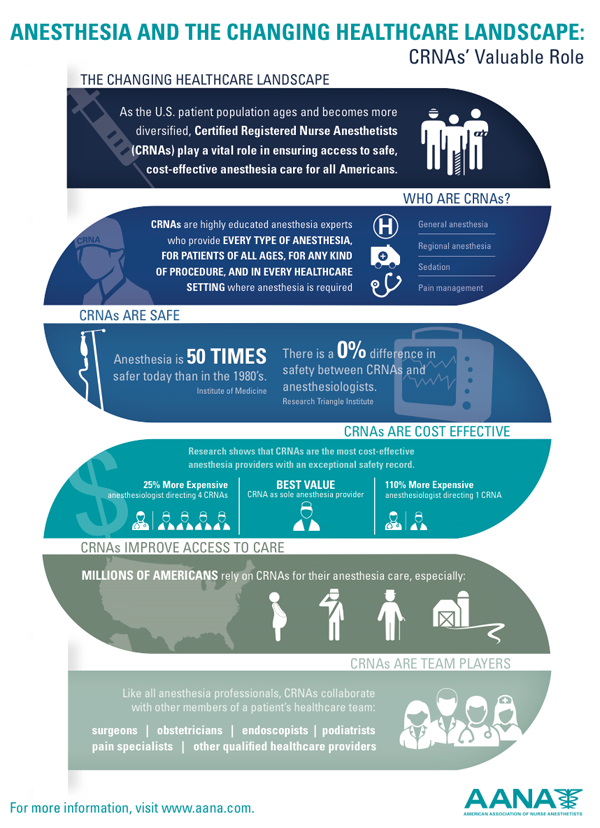 Who are CRNAs?
Who are CRNAs?
Research shows that Certified Registered Nurse Anesthetists (CRNAs) are the most cost-effective anesthesia providers with an exceptional safety record. In today’s changing healthcare environment, patients want healthcare delivered with personal care, at a lower cost, with a high degree of confidence. CRNAs deliver all of these.
Certified Registered Nurse Anesthetists (CRNAs) are highly educated anesthesia professionals who provide the full range of anesthesia and pain management services. As advanced practice registered nurses, CRNAs have been providing anesthesia in the United States for more than 150 years, long before the CRNA credential came into existence in 1956.
CRNAs provide anesthesia in collaboration with surgeons, dentists, podiatrists, anesthesiologists, and other qualified healthcare professionals. When anesthesia is administered by a nurse anesthetist, it is recognized as the practice of nursing; when administered by an anesthesiologist, it is recognized as the practice of medicine. Regardless of whether their educational background is in nursing or medicine, all anesthesia professionals give anesthesia the same way.
CRNAs practice in every setting in which anesthesia is delivered: traditional hospital surgical suites and obstetrical delivery rooms; critical access hospitals; ambulatory surgical centers; the offices of dentists, podiatrists, ophthalmologists, plastic surgeons, and pain management specialists; and U.S. military, Public Health Services, and Department of Veterans Affairs healthcare facilities.
